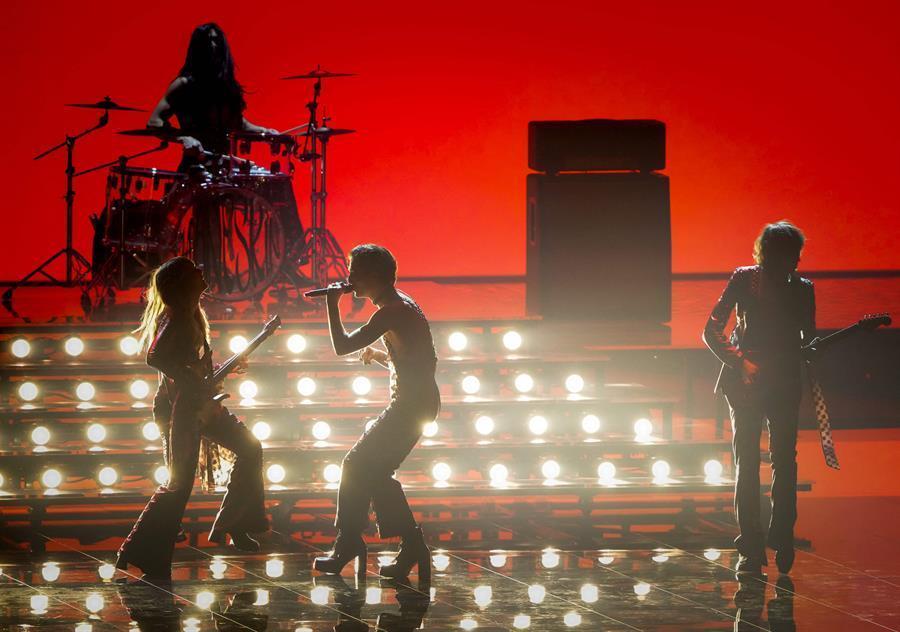
The kitschy glamour of Eurovision is back, with the Dutch hosting a scaled-down, coronavirus-safe version this week after the song contest was canceled last year.
Around 3,500 COVID-tested fans will be allowed to attend the May 22 final in Rotterdam as the return of the pageant injects some glitz into Europe’s cautious reopening.
French singer Barbara Pravi, dubbed a modern-day Edith Piaf, is the bookmakers’ favorite to end her country’s 44-year Eurovision drought, followed by Italy and Malta.
Performers will be in a special “bubble” under strict rules imposed by the Dutch government to allow the contest at the port city’s Ahoy Arena to go ahead.
“We don’t take lightly the responsibility of hosting the Eurovision Song Contest at this challenging time,” said Eurovision executive supervisor Martin Oesterdahl.
Known for its flamboyant costumes and cheesy songs, Eurovision is watched by more than 180 million people in over four dozen countries as far afield as Australia.
But the televisual pageant was scrapped for the first time in its six-decade history last year as the coronavirus pandemic began sweeping the globe.
On May 15, organizers announced that one of the members of the Polish delegation had tested positive for COVID-19 and that the whole delegation, including singer Rafal Brzozowski, has gone into quarantine.
This means they will not be able to perform live at Thursday’s second semifinal when a recording of their last rehearsal will be shown.
The cancellation was a bitter disappointment for the Netherlands, which won the right to host the contest after Dutch crooner Duncan Laurence won in Israel in 2019.
At the peak of the pandemic, the Rotterdam venue was even repurposed to host 88 beds for coronavirus patients. But now it will host live audiences not only for the final but also for two semi-finals on May 18 and 20.
Under the Dutch government’s Fieldlab program of trial events, each show will allow an audience of 3,500 people, around 20 percent of the Ahoy Arena’s capacity.
For viewers used to a sea of flags and glammed-up artists hugging and celebrating, the 2021 Eurovision Song Contest will however be different.
Artists from most of the 39 countries involved are traveling to the Netherlands, but some - such as Australia - will take part via pre-recorded video.